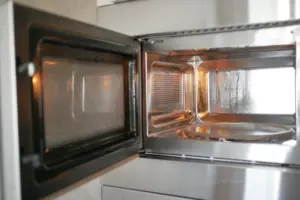Knowing how to hand wash clothes will take you a long way. When your washing machine suddenly stops working, it can disrupt your routine and leave you scrambling for a solution. In emergencies, hand washing clothes becomes a practical alternative to ensure you maintain clean garments until your appliance is repaired. While it might seem like a daunting task, hand washing is simple and highly effective. At My Appliance Guy, we’re committed to helping you navigate these challenges, offering guidance for both immediate solutions and long-term repairs.
Hand washing clothes is not just a survival skill; it’s a reliable way to care for your garments, especially in emergencies. Whether you’re handling a small load or washing delicates, understanding the correct techniques will help you achieve excellent results without damaging your clothes. Beyond emergencies, this skill can come in handy for situations like traveling, camping, or washing specialty fabrics. Let’s go over how to hand wash clothes.
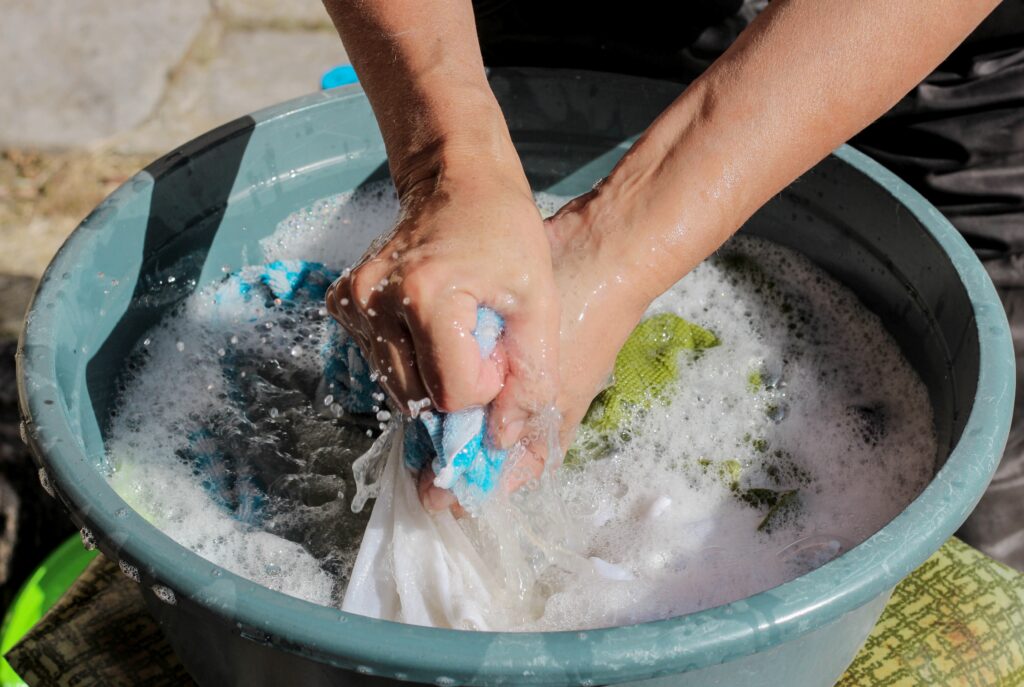
Gathering the Right Supplies
Hand washing requires just a few basic items that you likely already have at home. You’ll need a sink, tub, or large basin to hold the water and clothes. A mild detergent designed for hand washing is ideal, though dish soap or shampoo can be used in a pinch as long as they’re free from dyes and harsh chemicals. Clean, lukewarm water is essential for effective cleaning, and a drying space, such as a clothesline or rack, will help you finish the process. For stubborn stains, a soft brush can be a helpful tool, but it should only be used on durable fabrics.
Sorting Clothes Before Washing
As with machine washing, sorting your clothes is an important first step. Separate items by color, fabric type, and level of dirtiness to prevent problems like dye transfer or improper cleaning. Dark clothes should always be kept separate from lights, and delicate fabrics like silk or wool require special care. Heavily soiled items should be washed individually to avoid spreading dirt to other garments. Sorting ensures your clothes remain in good condition and makes the hand-washing process more efficient.
Preparing the Washing Area
Once your clothes are sorted, prepare the washing area. Fill your sink, tub, or basin with lukewarm water, adjusting the temperature based on fabric care labels. Cold water is best for delicate items to avoid shrinkage or damage. Add a small amount of detergent to the water, mixing it gently to create suds. Avoid overusing detergent, as excessive suds can make rinsing more difficult.

Washing Your Clothes
Start with the least soiled or lightest items to keep the water cleaner for longer. Submerge each garment in the soapy water, allowing it to soak for a few minutes. Use your hands to gently agitate the fabric, mimicking the motion of a washing machine. For stubborn spots or stains, rub the fabric gently against itself or use a soft brush on tougher materials like denim.
Be patient during this process, taking care not to twist or wring delicate fabrics. Hand washing is a gentler process, and a little extra time ensures your clothes come out clean without unnecessary wear and tear. Once washed, remove the garment from the soapy water and inspect it for any lingering dirt.
Rinsing for a Residue-Free Finish
Proper rinsing is key to removing all soap residue from your clothes. Drain the soapy water and refill the basin with clean, lukewarm water. Submerge the garment and gently swish it around to rinse out the soap. You may need to repeat this step with fresh water to ensure all detergent is removed. For thicker fabrics, press the garment lightly against the basin to release any trapped suds.
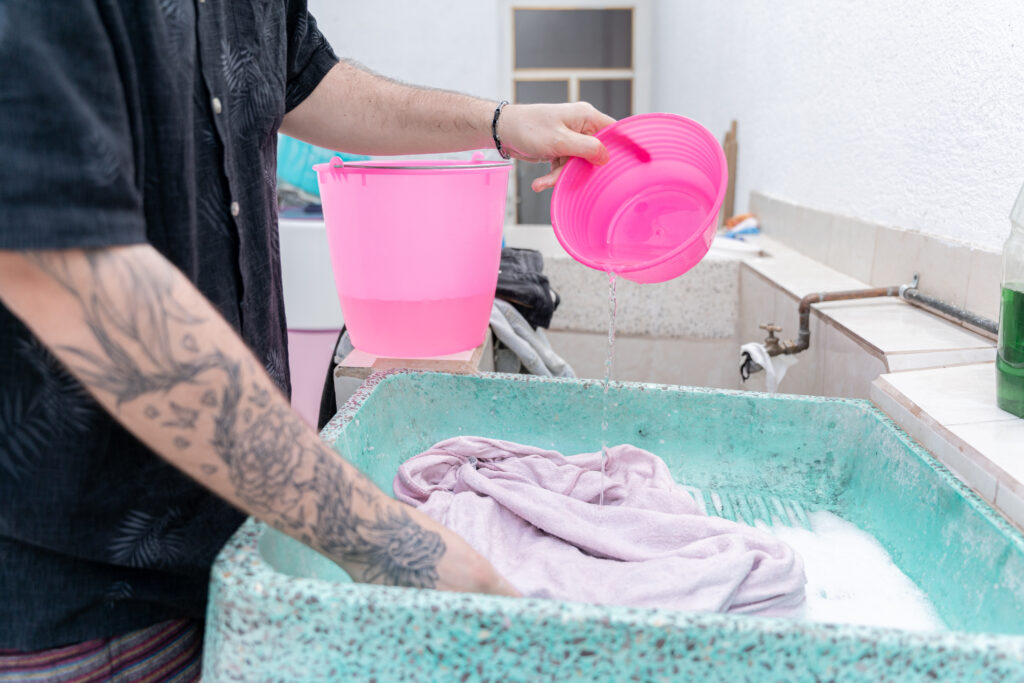
Drying Hand-Washed Clothes
After rinsing, avoid wringing out the water, especially for delicate fabrics. Instead, gently press the garment between your hands or against the side of the basin to remove excess water. Lay the item flat on a clean, dry towel and roll it up to absorb moisture. For durable fabrics, you can hang them on a clothesline or drying rack, ensuring they’re properly supported to prevent stretching. If you’re indoors, place the drying rack in a well-ventilated area to speed up the drying process.
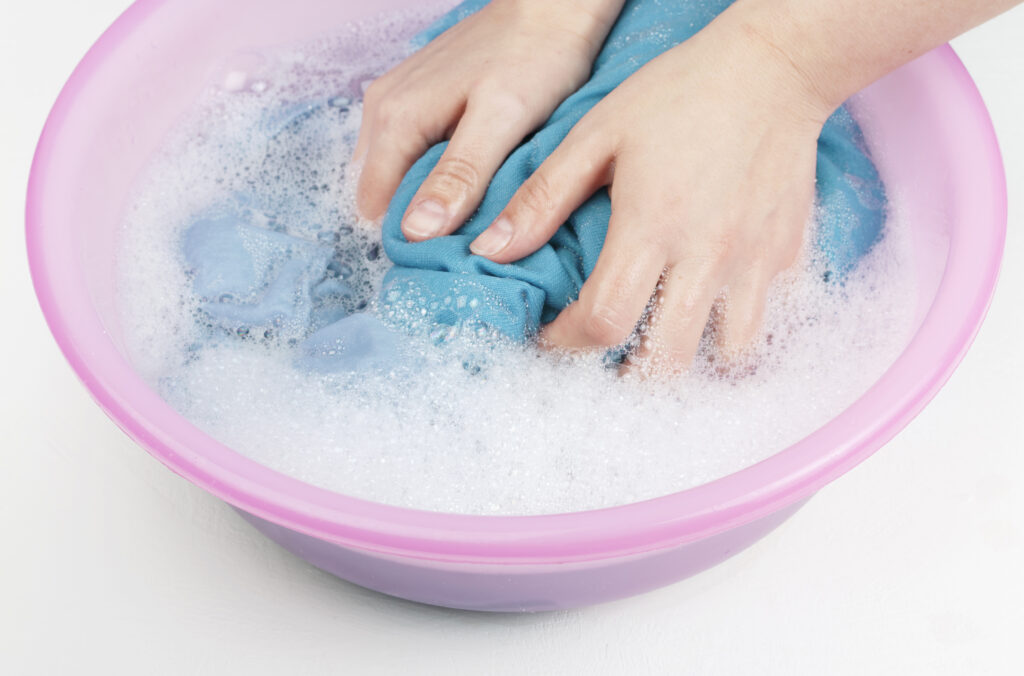
Benefits of Hand Washing Clothes
Hand washing may seem inconvenient at first, but it has its advantages. It’s a gentle method that’s particularly suited for delicate fabrics, preserving their color and texture. It also uses less water and energy compared to a traditional washing machine, making it an environmentally friendly option. For emergencies, it offers a quick and effective way to maintain cleanliness without the need for professional laundry services.
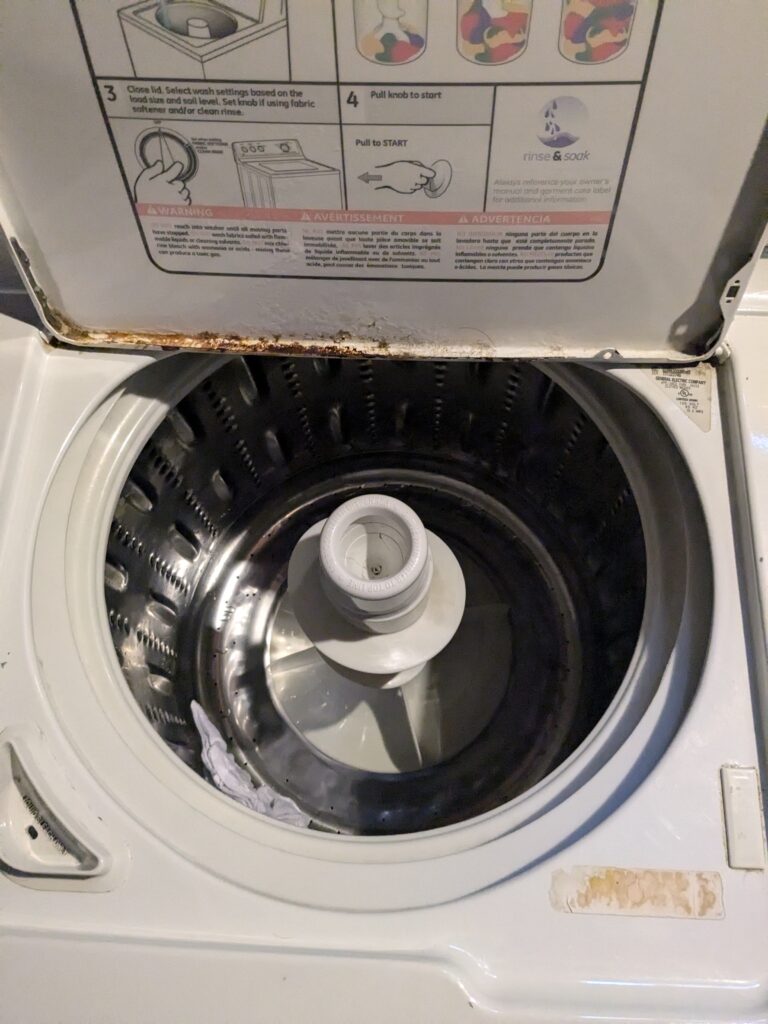
Keeping Your Clothes Fresh Until Repairs
While hand washing is a reliable temporary solution, it’s important to address your broken washing machine as soon as possible. At My Appliance Guy, we specialize in prompt, professional repairs to get your appliances running smoothly again. With our expertise, you won’t have to rely on hand washing for long. By understanding how to clean your clothes manually, you’re equipped to handle any laundry emergency with ease.
Hand washing clothes doesn’t have to be a daunting task. With the right tools and techniques, it’s a straightforward process that keeps your garments fresh and clean. While you wait for your washing machine to be repaired, this method ensures that life goes on with minimal disruption. Remember, My Appliance Guy is here to help with expert washing machine repair services to restore your appliances quickly and efficiently.


